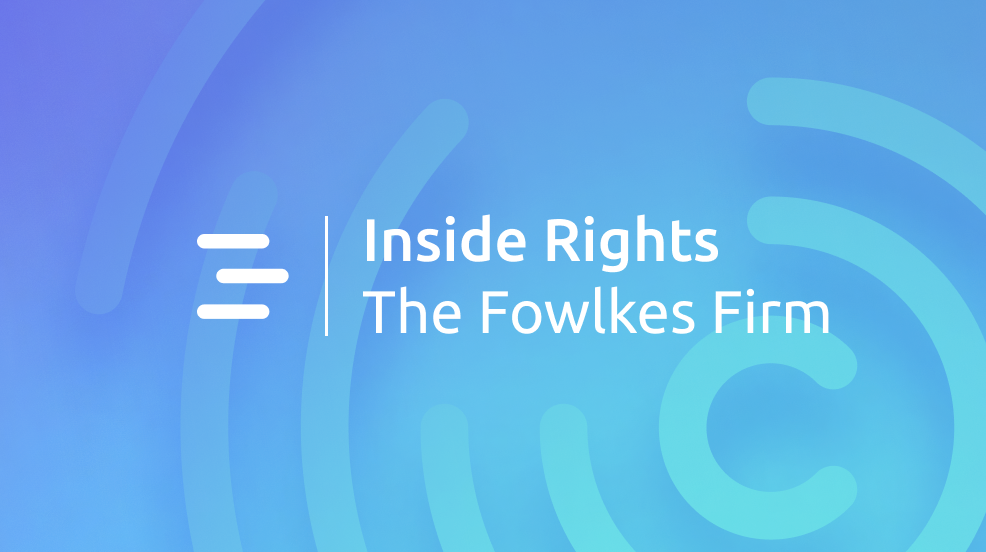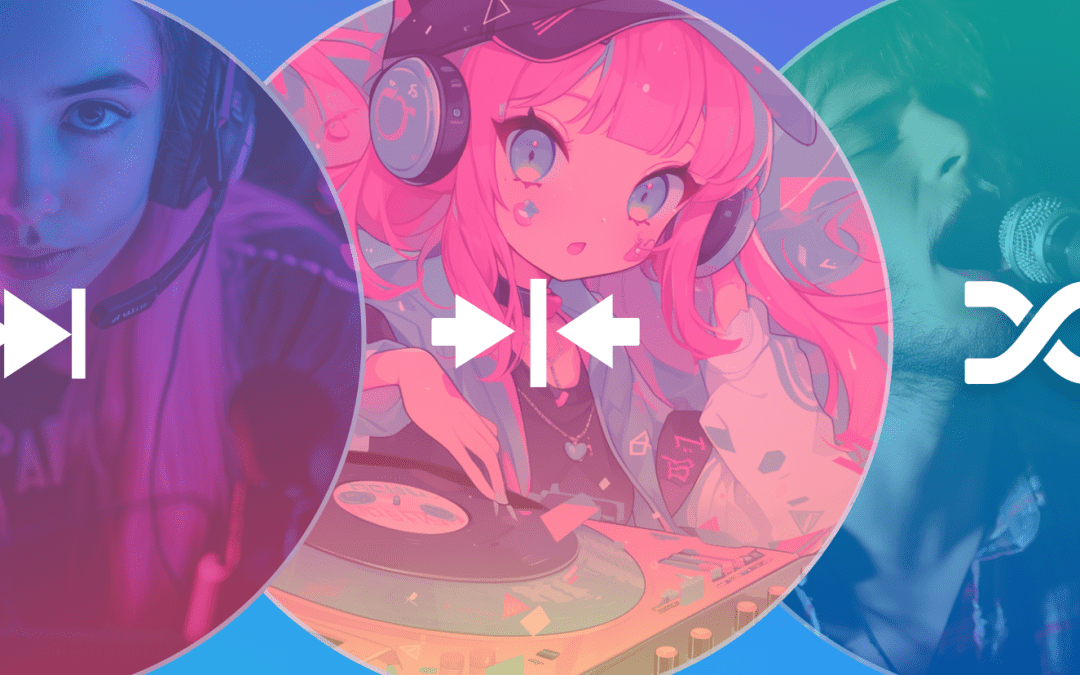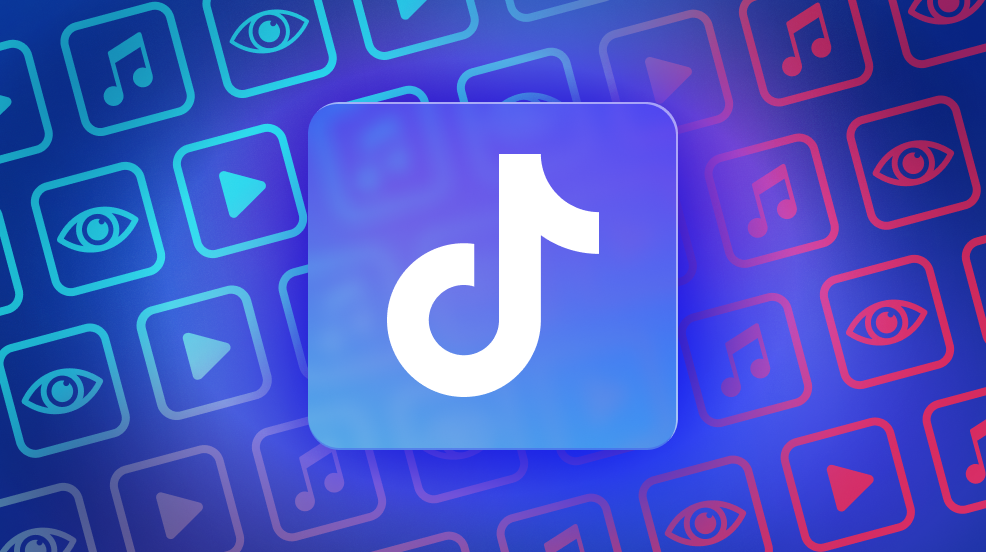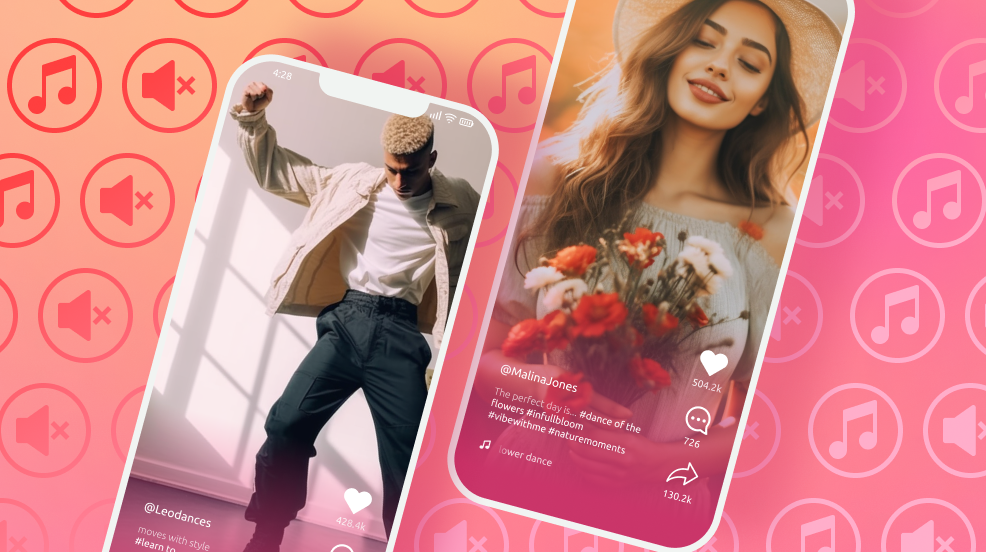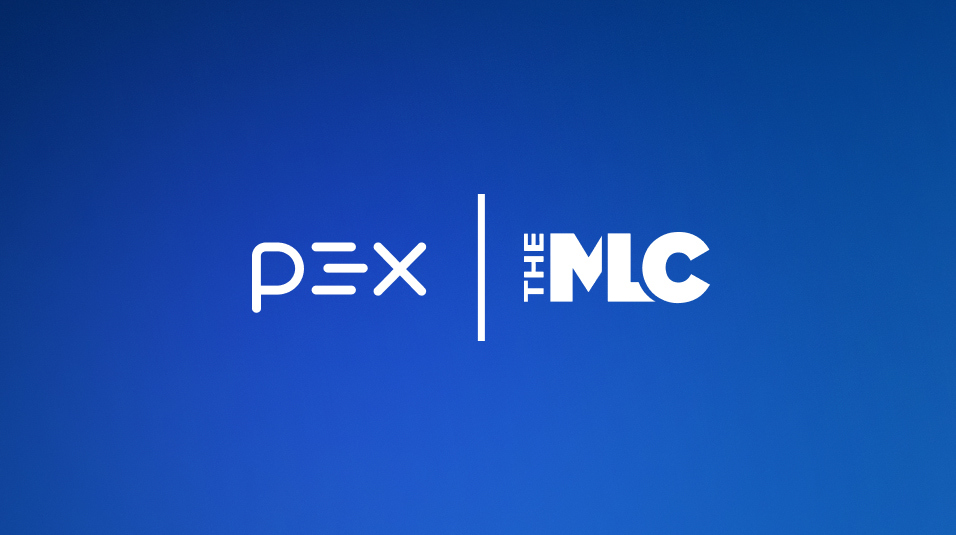Inside Rights is an interview series hosted by Pex. As the trusted global leader in digital rights technology, we routinely speak with rightsholders about their copyright challenges and successes. We hope this series sheds light on the complexities of copyright use on social media and the importance of proper attribution for platforms, rightsholders, and content creators.
The importance of controlling your IP, how royalty systems are broken, and the pros and cons of copyright use on social media
Contracts like record deals can leave artists with little to no control over their copyrights, and as a result, little to no control over what they can earn from the use of their music. Buying, selling, and owning music copyrights is extremely complicated. Without the proper knowledge, rightsholders can sign away too much of their IP – losing control of their assets and ultimately their earning potential. While the allure of a record or publishing deal may have artists seeing dollar signs, it’s critical to understand the importance of owning and controlling your IP, especially in a digital world where music is distributed on social media without an artist’s knowledge.
I spoke with entertainment attorney Karl Fowlkes, Founder and Managing Partner at The Fowlkes Firm, about the importance of owning your own IP, the pros and cons of copyright use in social media, and how outdated accounting and contractual models can make collecting royalty revenue difficult for rightsholders.
Zack Bolak: You negotiate contracts on behalf of artists and producers, how important is owning your IP?
Karl Fowlkes, Esq.: Whenever there’s a transaction involving money and intellectual property rights, it’s really about control of an asset. If you’re a company trying to acquire a copyright or a songwriter’s catalog, or do a deal with a new producer, artist, or songwriter, you want control just like the creator does. You want the ability to say yes or no for syncs, to move it around, pitch it to different brands, and other stuff like that. I think control is really what’s at the root of a lot of conflict. 10 to 20 years from now you want to be in a position to capitalize off the catalog sale craze that’s happening right now where catalogs are selling at 20x +. For creators, just know if people are looking to acquire your copyrights, that means they have value or have the potential to have even more value in the future. Thus, it’s important to have control over your assets to make sure you can reap the benefits short term and long term. Ownership is the way to do that.
ZB: What does that kind of ownership and control look like specifically?
KF: Generally speaking, record deals have historically always had the work for hire language, which is very different from an assignment of copyright where there’s always a 35-year reversion right that’s mandatory by law. Meaning even if I transfer some of my copyrights, there’s a statutory reversion that says I can get it back in 35 years. But if it’s a work for hire, there is no reversion right – the artists are left with zero control: they have no say on what happens with their master. And that applies to everything from streaming, to what platforms it goes on, to how much the music is priced at – there’s literally zero control.
Nowadays, there’s a bunch of other options out there for rightsholders, where you might just have a partner that distributes music, but you have full control. You can literally do what you want with those masters, pitch it wherever, take it down on certain platforms. That’s the control a lot of artists are looking to have.
ZB: Streaming and social media helped music evolve, but made controlling IP impractical. What are your thoughts on the lack of control in the digital space?
KF: Europe and Article 17 have pushed control online further. But who’s in the best position to regulate copyright on a global scale and create the technology to enforce it? It’s probably the DSPs out there, it’s probably YouTube and the Googles of the universe who have the bandwidth and technology to create the best copyright system. I think the balance hasn’t really been struck yet. The pendulum swings, and sometimes it feels like the internet is the wild, wild west where people are using all sorts of music and not really getting paid for it. And then other times you’re like, I can’t even put up an Instagram story with a song in the background without it being taken down.
There’s always the question of cost benefit analysis. A lot of behavior on the internet that rightsholders aren’t getting compensated for is also driving the music, helping the music get to different territories globally. I think that’s the battle in the copyright debate because on one hand you want artists to be in control of their copyright in the digital space. But the flip side of that is the internet allows copyright and intellectual property to spread to the masses a lot quicker, which normally benefits the artist long term. It’s interesting to follow, and I think Article 17 is definitely making these platforms become a little bit more serious about it.
ZB: There’s a lot of buzz around NFTs right now, but it doesn’t seem like there’s a similar grassroots movement around copyright and ownership with NFTs. Is it possible for artists and songwriters to create a larger conversation around the importance of owning and managing your copyrights online?
KF: It’s happening. I’ve been practicing law for five years the change in deals I’ve seen from then to now, especially as it relates to copyright, is pretty remarkable. Back then, the 360 deal was more common, and you were rarely getting your masters back. Now, there’s almost an assumption that when you send over an agreement, there’s going to be a reversion of copyright in that agreement. I think the copyright conversation is only getting louder.
The NFT stuff is interesting. It works a lot better outside of music, in particular with digital art and collectibles. So many things happen off-chain in the music industry. Say you own 20% of a song via the NFT, I guess that NFT helps you a little bit, but how are you going to collect those royalties? I don’t think it’s the best fit yet. We need to keep working through how it makes sense. I don’t think that the value proposition for the consumer or the purchaser has been figured out all the way, but I think blockchain in general has a lot of different uses and potential uses in the music industry.
ZB: What challenges have you seen with getting proper attribution and payments, especially because of metadata?
KF: Metadata is another hot button issue in the music industry. A lot of it’s human error or laziness, but what it does for the creator is delay payment in an industry that’s already delayed. Performance royalties on the publishing side are already paid out a couple quarters behind, so imagine having to then clean up metadata issues first. You might have a hit song on the radio, and because of a simple metadata issue, you might not get paid from that song for a year and a half. And it’s all just sort of elementary issues with metadata. That’s the easiest way to make your product better – make sure people are getting paid on time. It’s such an easy value add.
ZB: What are the challenges you’ve seen in the recoupment process?
KF: Well, first of all, you’re trusting an accounting system that historically has always been off to most people. Usually you’re not dealing with a net profit situation where a label will simply recoup at one hundred percent, and then whatever your royalty is, it gets paid after recoupment. That’s not the way it works. You recoup at the royalty rate. So if you’re an artist, and you have a 20% royalty and the label has 80%, when a dollar is generated, only 20% of that dollar is counting toward recoupement. So you have to make five times the money that was given to you as an advance, which is astronomical. In any other aspect of life, why would you take that deal?
ZB: Is there any difference in payment times between different clients?
KF: I think songwriters get the short end of the stick for sure. Publishing royalties in general are sort of a back-end business. Like I said, you might have a song killing it on the radio but you won’t get paid for that for a couple of quarters. If you’re an artist and you work with a distributor, you could get paid once a month and pull out anytime you want – you’re not stressed. But songwriters are the ones who rely mostly on the publishing royalties and it’s a back-end business.
A better way to manage copyright online
At Pex, we speak to as many rightsholders as we can to help shape our Attribution Engine, the first real-time marketplace for copyrighted content that enables rightsholders to control and monetize their copyrights on participating platforms. With Attribution Engine, rightsholders can register their catalog with Pex so it can be identified and licensed on content-sharing platforms prior to content being published. Attribution Engine handles royalty calculations and payments on behalf of platforms, ensuring rightsholders receive prompt and accurate payments – and there’s no cost to register, license, or get paid. Rightsholders also have access to analytics on the performance of their catalog, so they can optimize their assets and revenue streams. With Attribution Engine, rightsholders can stop playing whack-a-mole and start truly controlling their copyrights online.
Want to learn more? Reach out to a member of our team at [email protected].
About The Fowlkes Firm: The Fowlkes Firm specializes in entertainment and startup law and represents some of the most innovative creatives and emerging companies in the arts, entertainment, digital media, tech, and fashion industries. Located in the Greater New York City area, the Fowlkes Firm represents clients that have made an international impact highlighting today’s increasingly interconnected and globalized market. Founded by Karl Fowlkes, the Firm has helped spearhead the transition of music and entertainment law within the modern world. The firm’s clients include artists, musicians, athletes, producers and creative companies that have amassed billions of streams, RIAA certifications, grammy awards and accolades from the likes of Forbes, Rolling Stone, Business Insider, Complex, Billboard and more.
About Karl Fowlkes, Esq.: Karl Fowlkes, Esq. is the Managing Partner of The Fowlkes Firm a internationally recognized entertainment law firm that provides legal advice to some of the most innovative creatives and emerging companies in the arts, entertainment, digital media, tech, sports and fashion industries. The firm’s clients include artists, musicians, athletes, music producers and creative companies that have amassed billions of streams, RIAA certifications, grammy awards and accolades from the likes of Forbes, Rolling Stone, Business Insider, Complex, Billboard and more. In the past years alone, Karl has negotiated deals worth over a combined 45 million dollars for his entertainment clients. Publications such as Rolling Stone, Complex, Variety, Bloomberg Law and Okayplayer have sought Karl’s subject matter expertise on topics ranging from the tricky business behind sampling music to the racial inequities of the music business. In addition to his entertainment practice, Karl is a Music Business Professor at the Billboard Recognized Music Industry Program at Drexel University. Karl’s courses include: Hip-Hop Evolution, Music Publishing, Contracts and Copyright Law. Karl is also a Certified NBPA Player Agent and FIBA Player Agent under Firm Sports.

